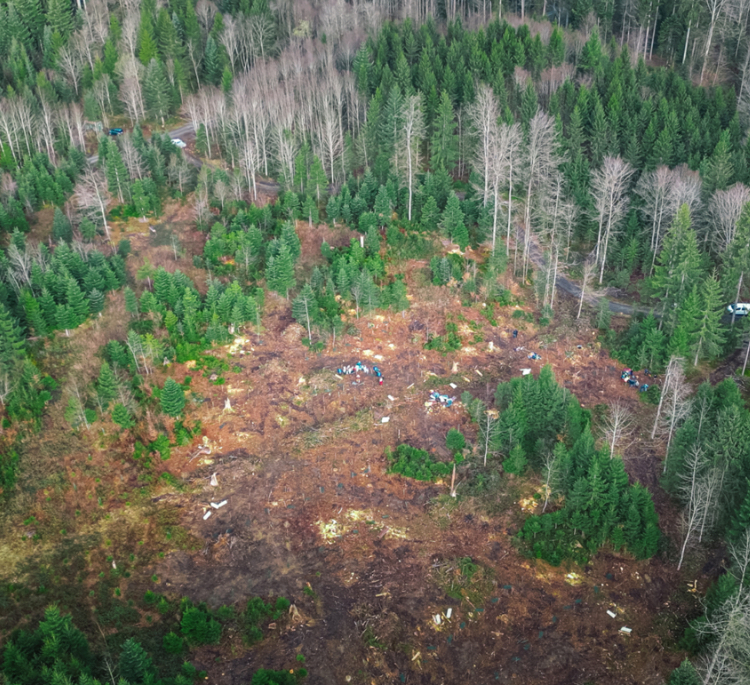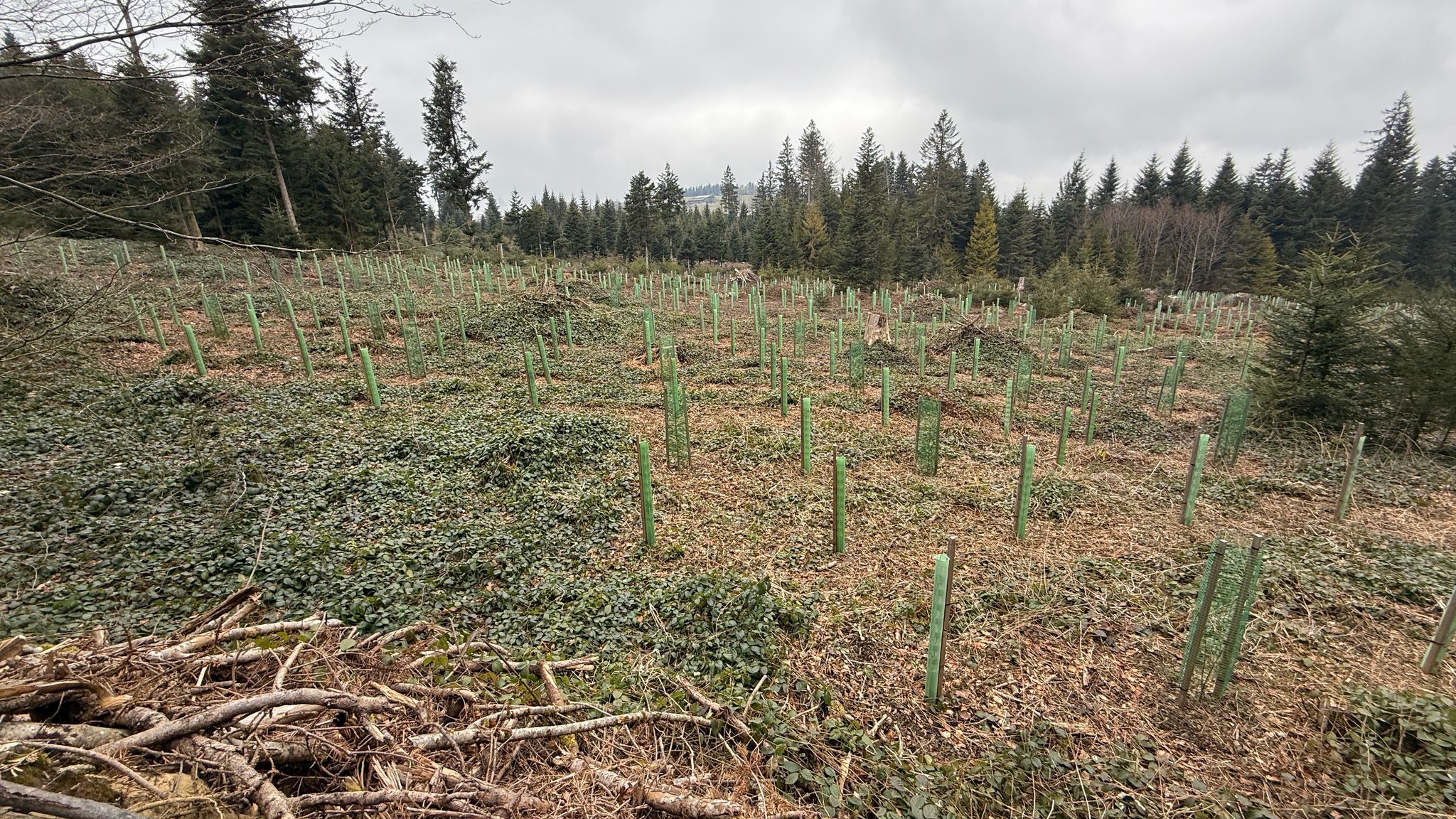New study makes a mockery of Switzerland’s “climate-fit” forests
Burning trees is good for the climate, we are repeatedly told by officials, politicians and biomass proponents.
Burning wood—from logs to logging residues—is carbon neutral and will help reduce net emissions, they claim.
And of course, logging is good for forests, forest ecosystems and the species that depend on them.
So convinced are some Swiss cantons that they are clearcutting perfectly healthy, mature, natural forests, burning most of the wood in the burgeoning woodchip-powered district heating systems and replanting with “climate resilient” species to produce “climate-fit” forests for the future.
Sometimes a single species of tree is replanted, invariably in serried rows.
Monoculture plantations are neither resilient nor do they promote biodiversity. Research has shown they burn more easily too. But even if several species are used, there is no guarantee they will regrow or thrive, much less produce a more resilient forest than the one they replaced.
After all, resilience is simply the time necessary for a forest ecosystem to regain its structure, composition and function after a disruption, be it man-made or natural. Logging destroys trees and structure as well as nutrient and energy cycles, lowering ecological resilience.
Oak is very often chosen because it promotes biodiversity and is deemed to be heat and drought resistant. It also benefits from the highest subsidies. The people in the know don’t advertise this fact. They prefer to obscure the use and abuse of tax payer money with all their other tall claims. Neither do they mention that oaks in Switzerland are increasingly impacted by Acute Oak Decline and a new Phytophthora root and trunk disease.

But let’s get back to the study and its key findings that:
- “Burning forest biomass, including logging residues, increases atmospheric CO2 concentration.”
- “Land sector reporting using net greenhouse gas inventories obscures the impact of forest harvesting on ecosystem carbon stocks.”
- “Biomass energy will most likely displace other renewable energy, rather than fossil fuels.”
- “The use of bioenergy results in major negative cascading impacts for forest ecosystem integrity and consequently a reduction in the resilience and natural adaptive capacity of species in the face of climate change impacts.”
And the parting comment:
“Bioenergy use is therefore in direct conflict with the commitment to limit the rate of global warming so that ecosystems can adapt naturally to climate change.”
“Climate-resilient” forests are just another fairy tale, just like the woody biomass climate neutral fantasies that our politicians and the biomass sector like to spin.
Diesel was once touted as an ecological fuel. Don’t fall for just another scam.
July 2025
